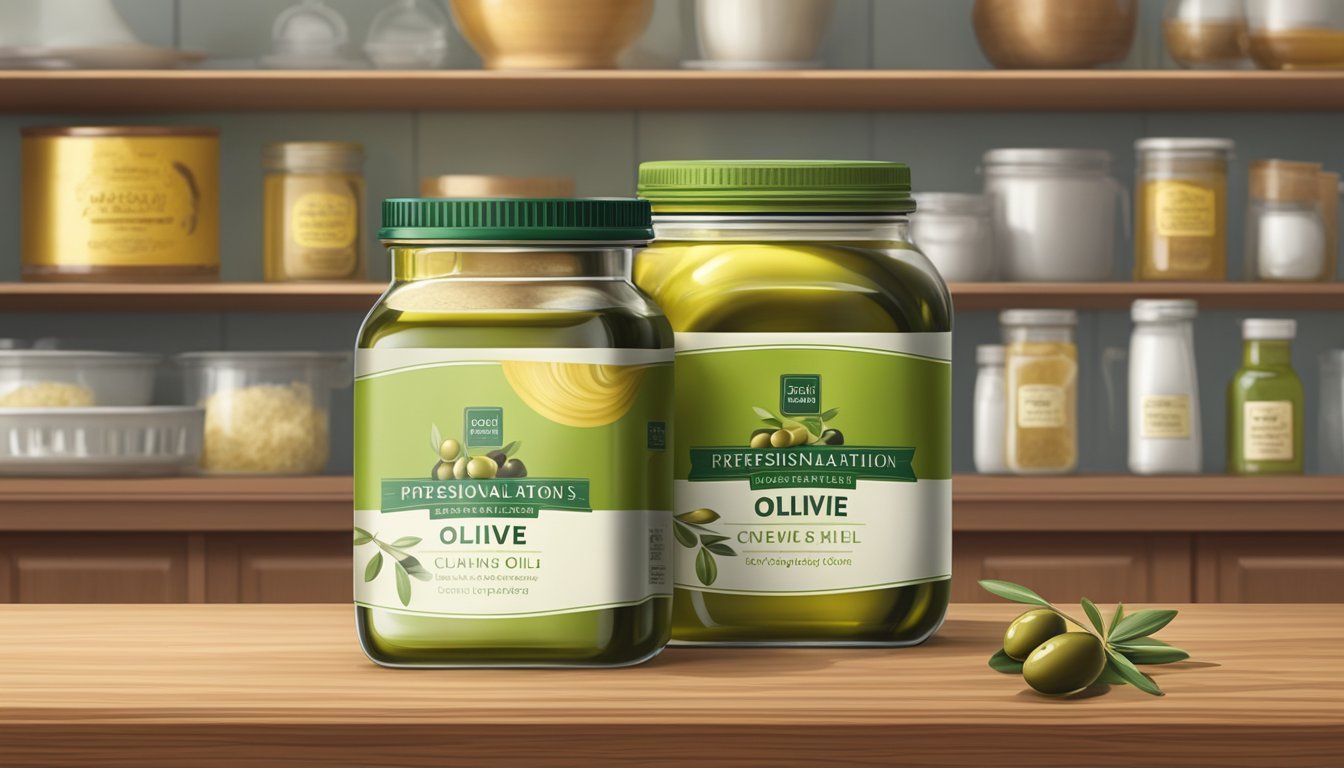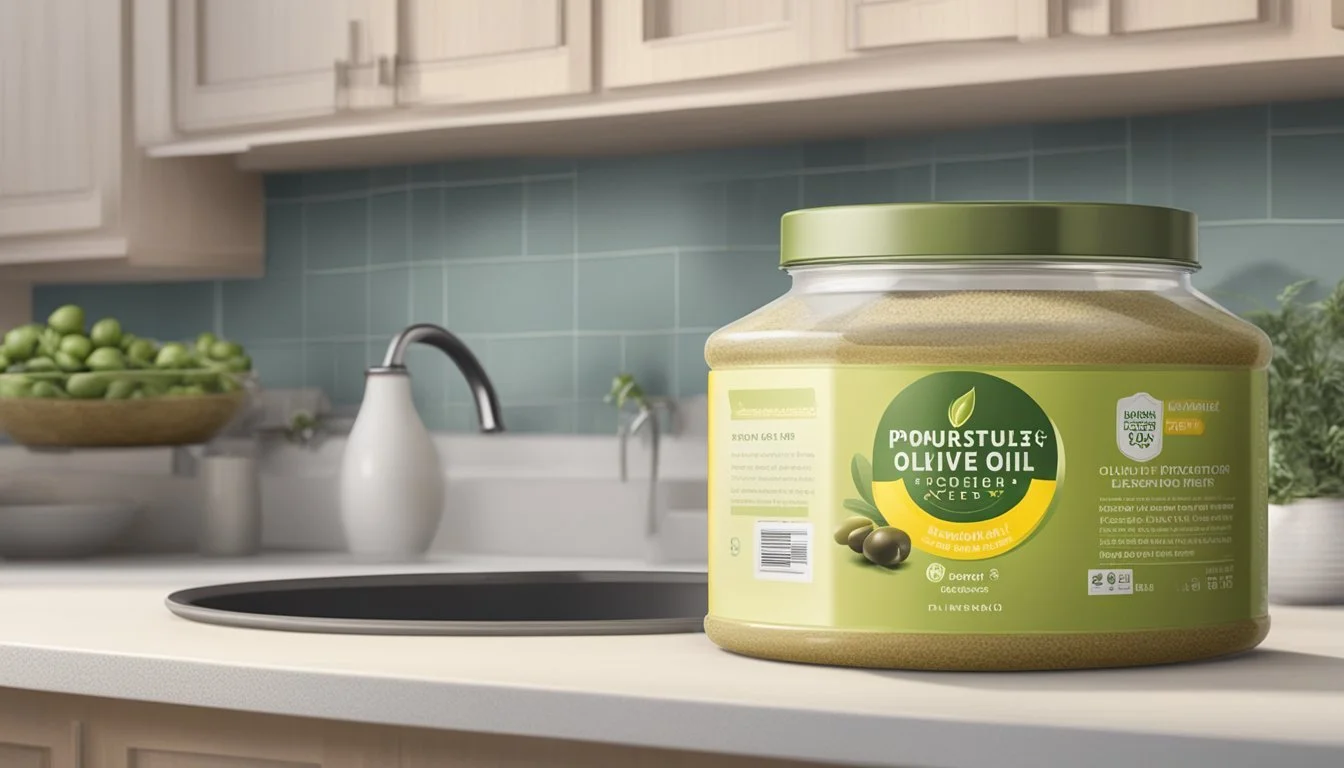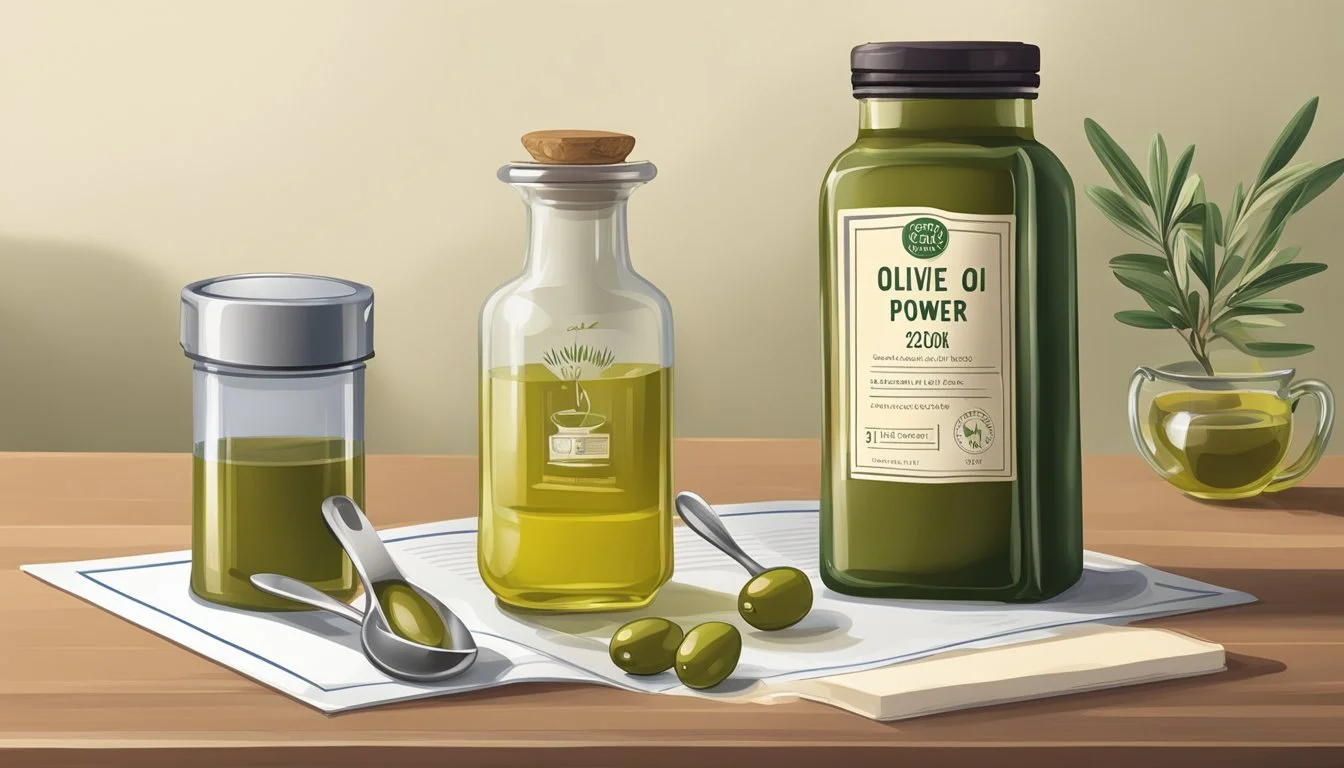How Long Does Olive Oil Powder Last?
Understanding Shelf Life and Storage
Olive oil powder is a modern kitchen innovation, offering a convenient and versatile way to incorporate the flavor and benefits of olive oil into various recipes. Understanding the shelf life of olive oil powder is essential for maintaining its quality and effectiveness as a culinary ingredient. Unlike liquid olive oil, which has a relatively well-established shelf life, olive oil powder might present some variations based on its composition and storage conditions, but typically it also benefits from the preservative properties of olive oil itself.
When stored properly in a cool, dark place, olive oil powder can last a significant amount of time. Manufacturers often provide a best-by date, and adhering to this label is crucial for ensuring that the olive oil powder retains its taste and nutritional value. It is also important to consider that just as its liquid counterpart, once the package of olive oil powder is opened, its shelf life may be reduced due to exposure to air and moisture, which can lead to rancidity or clumping.
Understanding Olive Oil Powder
Olive oil powder is an innovative culinary ingredient that marries the robust qualities of olive oil with a convenient powdered form. This section delves into the specifics of the powder's composition and the types available.
Composition and Characteristics
Olive oil powder consists of olive oil, which may range from standard to extra-virgin quality, that has been combined with modified starches. This combination allows the liquid to be transformed into a powdered state without losing the inherent characteristics of the oil. The resulting powder retains the monounsaturated fats and natural antioxidants typical in olive oil, which provide health benefits and stability.
Monounsaturated fats: Predominant in olive oil, essential for maintaining product quality and nutritional value.
Antioxidants: Natural antioxidants present in olive oil help in preserving the shelf-life of the powder.
The olive oil powder maintains its olive-derived organoleptic properties until it's rehydrated.
Types of Olive Oil Powder
There are primarily two forms of olive oil powder available in the market, each based on the type of olive oil used in its production:
Extra-Virgin Olive Oil Powder: Made from the highest quality of olive oil, it typically has more pronounced flavors and a higher content of natural antioxidants.
Standard Olive Oil Powder: This powder is derived from a lower grade of olive oil and may not possess the same intensity of flavor or levels of antioxidants as the extra-virgin variety.
In choosing between these types, consumers should consider both the desired flavor profile and nutritional aspects of the olive oil powder.
Shelf Life Fundamentals
Understanding the shelf life of olive oil powder is essential for maintaining its quality and nutritional value. This section explores the factors that affect shelf life and the meaning of expiration and best-by dates.
Shelf Life Determinants
Shelf life refers to the period an olive oil powder remains at its best quality under appropriate storage conditions. Key factors that influence shelf life include:
Storage conditions: Olive oil powder should be kept in cool, dark, and dry places to maximize shelf life.
Packaging: Properly sealed containers prevent exposure to air and moisture, which can degrade the powder.
Harvest date: The shelf life clock starts ticking from the harvest date of the olives (What wine goes well with olives?) used to make the oil.
Factor Impact on Shelf Life Storage conditions Higher temperatures can reduce shelf life. Packaging Inadequate packaging can shorten shelf life. Harvest date Older harvest dates can mean a shorter remaining shelf life.
Expiration Versus Best-By Date
Olive oil powder manufacturers provide dates to help determine the product's peak quality period:
Expiration date: Indicates the end of the powder's safety to consume. After this date, the olive oil powder should not be used.
Best-by date: Suggests when the product should be used for the best flavor or quality. It is not a safety-related date.
Both dates are based on the assumption of proper storage conditions. Consumers should be informed that:
Expiration dates are a guide for safety.
Best-by dates reflect optimum quality, not necessarily the point at which the product becomes unsafe.
Date Type Description Expiration Use olive oil powder before this date to ensure safety. Best-by Use by this date for best quality; the product may still be safe after.
Storage Guidelines
Proper storage of olive oil powder is crucial to maintain its quality and extend its shelf life. It involves controlling exposure to light, heat, air, and managing packaging conditions.
Optimal Storage Conditions
Ideally, olive oil powder should be stored in a cool, dark place to prevent degradation. Exposure to light and heat can accelerate the spoilage process, hence a kitchen cabinet away from the stove and other heat sources serves as an appropriate storage area.
Recommendations for Opened Versus Unopened Bottles
Unopened Bottles: Olive oil powder in unopened bottles can typically stay fresh longer. When sealed and unexposed to air (oxygen), the powder maintains its quality for an extended period.
Opened Bottles: Once opened, the bottle should be tightly sealed after each use. Exposure to air can lead to quality deterioration over time. If available, transferring olive oil powder to smaller bottles can minimize air contact.
Impact of Packaging
Different packaging materials affect the shelf life of olive oil powder:
Tin: Metallic tins can protect from light but may not provide an airtight seal once opened.
Glass Bottles: Glass offers excellent protection, especially if tinted, but is prone to breakage.
Bag-in-Box: This offers good protection from light and air, and often comes with a tap that minimizes air exposure with each use.
Refrigerator: For longer-term storage, particularly after opening, the refrigerator can help preserve quality but may not be necessary for powder form as it is for liquid.
For the best results, users should monitor the condition of the olive oil powder and keep it properly sealed between uses.
Detecting Spoilage
When it comes to olive oil powder, ensuring its quality before use is crucial. Detecting spoilage in olive oil powder involves careful observation and assessment of changes in visual appearance, texture, taste, and odor.
Visual and Textural Indicators
To identify spoilage in olive oil powder, one should begin with a visual examination. Fresh olive oil powder should have a uniform color and consistency. If they notice discoloration or clumping, it may signal that the powder has been exposed to moisture and could be compromised. Additionally, any visible signs of mold or other organic growth are clear indicators that the olive oil powder is no longer safe to use.
Taste and Odor Assessment
The taste and smell of olive oil powder are reliable indicators of its condition. If the powder has an acrid or off flavor when sampled, it has likely undergone rancidity. Similarly, a rancid or stale smell strongly suggests spoilage. It's important for users to trust their senses; olive oil powder that elicits a negative sensory response should be discarded to avoid consuming a product that has gone bad.
Health and Nutritional Considerations
When evaluating olive oil powder, it is crucial to consider both the health benefits it delivers when fresh and the risks associated with consuming it once it has gone rancid. Freshness is a key determinant of both the health benefits and flavor profile of olive oil powder.
Benefits of Fresh Olive Oil
Fresh olive oil is rich in monounsaturated fats, which are known to support heart health. It also contains antioxidants that can inhibit the oxidation process, potentially preventing cellular damage. Olive oil, being derived from the fruit of the olive tree, retains these beneficial properties when fresh and properly stored.
Health Benefits:
Supports heart health with monounsaturated fats
Contains antioxidants that combat oxidative stress
Risks of Consuming Rancid Oil
Once olive oil undergoes the oxidation process, usually from exposure to heat, light, or air over time, it can degrade into rancid oil. Consuming rancid olive oil is not only unpleasant in taste but may also lead to health risks, such as inflammatory responses in the body.
Risks:
Rancid oil can contribute to inflammation
The aging process diminishes olive oil's nutritional profile
Practical Usage Tips
When incorporating olive oil powder into kitchen routines, its versatility extends not just to cooking and baking applications, but also to innovative repurposing, providing opportunities for both enhancement of flavors and utility.
Cooking and Baking Applications
Olive oil powder offers cooks and bakers a convenient and creative way to infuse olive oil flavor into various dishes without introducing additional liquid. For cooking, it can be sprinkled on proteins such as chicken or fish before roasting for a crisp, flavorful crust. In baking, it works well when mixed into bread doughs or dusted atop focaccia for an extra hint of olive oil essence.
Cooking: Use as a seasoning for meats or vegetables
Baking: Incorporate into bread doughs for enriched flavor
Alternative Uses for Expired Olive Oil
Instead of discarding expired olive oil powder, one can repurpose it effectively. As a lubricant, it can be used on cutting boards to maintain their condition; just apply a thin layer and rub it into the wood. Additionally, in place of canola oil, expired olive oil powder can create a subtle, non-stick coating for pots and pans.
Cutting Boards: Condition and maintain with a coating of olive oil powder
Canola Oil Substitute: Use to lightly grease cookware
By understanding these practical applications, individuals can maximize the usage of olive oil powder in the kitchen, whether it's within its freshness date or beyond.
Purchasing and Consumption Strategies
When buying and using olive oil powder, one should prioritize quality and freshness to ensure the best taste, flavor, and mouthfeel. These attributes are crucial for the overall culinary experience.
Selecting Quality Olive Oil Powder
Quality is paramount when it comes to olive oil powder. One should look for products that specify the type of olive used and its origin. A high-quality olive oil powder typically originates from a fresh, fruit-based oil, retaining the flavor nuances of the source oil.
Check Labels: Seek products listing extra virgin olive oil as the base, ensuring a richer taste.
Reputation: Consider brands with a strong reputation for quality in olive oil production.
Consumption Tips to Maximize Freshness
Olive oil powder, like any dehydrated product, can lose freshness if not stored properly. The retention of the olive's inherent taste and flavor is essential for optimizing mouthfeel.
Storage: Keep it in a cool, dark place away from moisture to maintain its freshness.
Sealing: After each use, ensure the packaging is sealed tightly to prevent clumping and flavor loss.
By following these purchasing and consumption strategies, consumers can enjoy premium olive oil powder that enhances their culinary creations.








